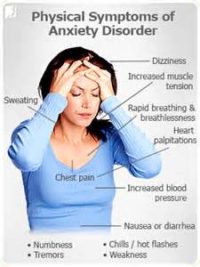
ADHD – What is it?
ADHD-A Rediscovered Condition
ADHD or ‘Attention Deficit Hyperactivity Disorder’ is a condition that is not new. We may hear a lot more about it today, but it was described nearly 100 years ago by an English doctor called George Still.
It affects around 5% of school-aged children and some 10% may be affected by it to a lesser degree. Some children may have difficulties such as learning obstacles like dyslexia, and boys are more likely to be affected than girls. It is rarely diagnosed before the age of 6 as many of the behaviours of the disorder can be a part of the usual sequence of child development. The majority of children therefore are diagnosed between the ages of 6 and 9 years old.
Children with ADHD might:
- be subject to frequent emotional outbursts and mood swings.
- have impaired social skills. They can be bossy and find it difficult to make friends. They are unsure about how to behave appropriately with others.
- be over-active, restless and fidgety.
- have a limited sense of danger and can often speak and act without thinking.
According to the ‘National Institute for Clinical Excellence’, about 1% of all children are prescribed for the condition medication such as methylphenidate (Ritalin). It is a drug that stimulates and enhances brain function and has been proven to be very effective. It helps the child to focus and pay attention and to think before they act. Once the child’s behaviour improves, the dose can be decreased. With or without medication, it is very important to have consistency at home and at school so the child’s behaviour can be managed.
In the past I have been on courses and looked after children with this condition in a school setting, so I understand the frustrations and problems that it can present to children, parents and school staff. However, it is very important to realise that ‘ADHD’ can, near enough, be managed so that the child gets the full, proper and constructive education that they need and deserve.
Researchers still disagree on the reasons behind the exact cause of ‘ADHD’, but there are two things that are without doubt; that the condition is hereditary and the problems it presents are subtle differences in the fine tuning of the brain. It is definitely not caused by bad parenting! It has been noted that children who possess the condition often, but not always, have a parent (usually the father) that, on reflection, found their education difficult and under-functioned academically.
In the ‘ADHD’ child, it seems that the information that the brain receives is in a bit of a ‘buzz’, so that the child can easily become distracted, with so much competing stimulation that they can often respond without giving anything much thought. Parents may have been told to be ‘a lot stricter’ or even being called a ‘bad parent’. This does not help. Apart from it being untrue, it can make parents feel inadequate. Understandably, many can feel tired and stressed-out with the situation.
Many children cannot wait at the end of the day to leave the classroom, as they want freedom, space and exercise. It is really important that these children have outside interests that they can excel, which will in turn boost their confidence. Well chosen activities can ultimately bring about great enjoyment and limit social stresses. Research has shown that swimming, athletics and bike-riding are excellent in this regard. The child’s attention span may at times be somewhat wayward, but to persist with different pastimes can be very rewarding until the child actually finds the things they love to do.
I have looked after a few children with ‘ADHD’ in my career, and I have seen the challenges that it presents. Generally, the child needs a quiet place to relax in on occasion, as the classroom can sometimes be too noisy and can create anxiety. It is also imperative to use distraction techniques when a child’s behaviour becomes out of hand; maybe to let the child get some fresh air and kick a football or run outside in order to eliminate the extra adrenaline. I have noticed how they can excel, especially at sports which I definitely encouraged. One of the children was a ‘star footballer in the making’.
It can be a most stressful times for parents, but with the help of a proper diagnosis, support from the school and carers, the child with ‘ADHD’ can shine!
The condition changes as the child grows up. Although it’s perfectly possible to grow out of the condition completely, around two thirds of those with the ADHD continue to benefit from some form of medication well into adulthood. In the majority of cases, though, the overall impact of the condition can be minimal if managed correctly.
Finally, it’s worth noting that some of the most influential people, such as Einstein, Churchill and Picasso had one thing in common, they channelled their ‘ADHD’ activity and drive to achieve greatness.
Suggested reading:
The Survival Guide for Kids with ADHD by John F. Taylor, Ph.d.
ADHD-Living Without the Brakes by Martin L. Kutser and Douglas Puder.

